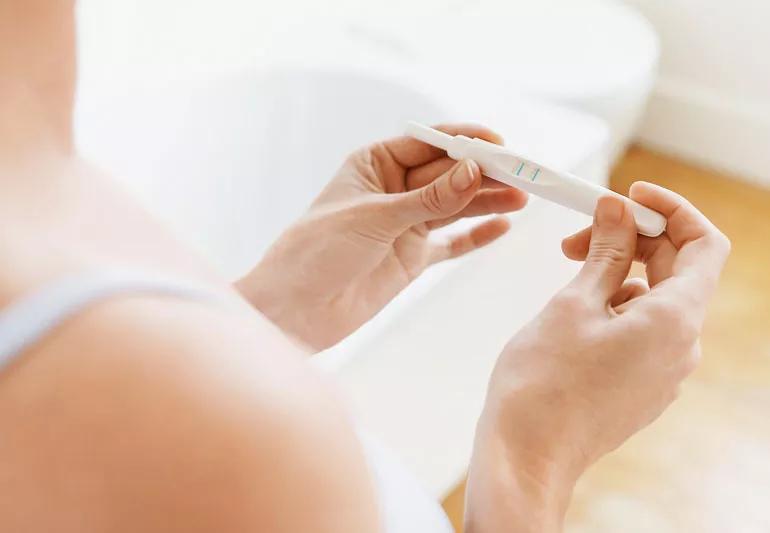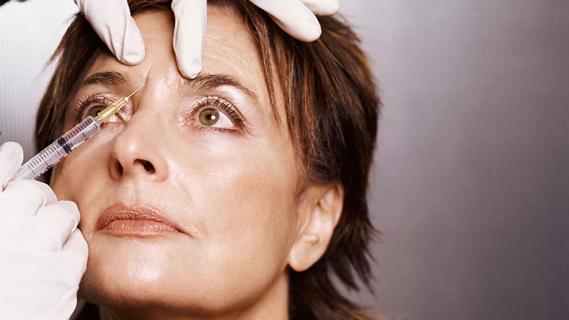Yes, but pregnancy is still possible

People who are diagnosed with endometriosis understandably have a lot of questions. One of the most common ones is: Will I be able to get pregnant?
Advertisement
Cleveland Clinic is a non-profit academic medical center. Advertising on our site helps support our mission. We do not endorse non-Cleveland Clinic products or services. Policy
Research has found that endometriosis is associated with infertility. “Not all endometriosis patients are infertile, but a lot of endometriosis patients do live with infertility,” says Miguel Luna, MD, an Ob/Gyn who specializes in endometriosis. “That’s another sign of endometriosis in addition to pain.”
In other words, for certain people, endometriosis can make it harder to conceive. But living with this condition doesn’t mean you need to rule out pregnancy.
Dr. Luna explains how endometriosis affects fertility — and how people living with the disease can manage their diagnosis.
Your uterus is normally lined with tissue called the endometrium. Endometriosis occurs when endometrium-like tissue grows in places where it shouldn’t, like on your fallopian tubes, ovaries or your pelvis. These growths cause inflammation and, eventually, scarring.
“Endometriosis creates an inflammatory environment inside of the pelvis,” says Dr. Luna. “But it’s a systemic condition. Researchers have found signs of inflammation (inflammatory markers) in pelvic and abdominal fluid. And these same inflammatory markers are found at elevated levels in your bloodstream.”
Healthcare providers believe this inflammation makes it harder for the sperm and egg to rendezvous, or for an embryo to implant in your uterus. In later stages of endometriosis, scarring can cause structural changes — like kinks or blockages in your fallopian tubes — that prevent the sperm and egg from hooking up.
Advertisement
“The fallopian tubes can get blocked because of a lesion that’s close to the tube,” explains Dr. Luna. “Ovarian tissue can also get damaged with the growth of endometriosis-related cysts.” The inflammation associated with endometriosis can also damage the DNA of your oocytes, or unfertilized eggs in your ovaries.
Yes, you can get pregnant with endometriosis, and you won’t necessarily have a more difficult pregnancy.
But a 2021 review and meta-analysis of studies focused on endometriosis and adverse pregnancy outcomes suggests that people with endometriosis might have an increased risk of complications during pregnancy.
This includes placental abruption — where the placenta detaches from your uterus before birth — and stillbirth.
“There is an association between endometriosis and adverse obstetric outcomes,” notes Dr. Luna. “People living with endometriosis who become pregnant and deliver are at higher risk of having preeclampsia, gestational diabetes and hypertension, and pre-term (premature) birth as well.”
People living with endometriosis can also successfully get pregnant using in-vitro fertilization (IVF), as long as their ovaries are still capable of producing eggs. That’s because the egg and sperm are meeting in a petri dish and are removed from the inflammatory environment.
But in general, pregnancies that result from IVF come with a higher risk of preeclampsia, gestational diabetes and growth restriction.
Endometriosis is a debilitating condition that can have a negative impact on your day-to-day life. Getting a diagnosis is your first step toward finding relief from symptoms.
“Endometriosis causes pain, and it can be detrimental to your quality of life and sexual health,” says Dr. Luna. “If you’re in pain for a very, very long time, you’ll have issues with fertility and conception. It’s very important to have a diagnosis so treatment can improve your life.”
If you’re living with endometriosis and you’re ready to start trying to get pregnant, talk to your doctor. Your plan of action depends on a lot of factors, including how old you are, how long you’ve been trying to get pregnant and how advanced the endometriosis is.
Luckily, endometriosis treatment has come a long way in recent years, and is now tailored to individual needs and goals. “We meet you where you are,” states Dr. Luna. “Is it pain relief? Is it fertility? Is it having a baby in the next year?”
Endometriosis treatment can be surgical or medical. “Overall, we treat endometriosis in different ways,” he continues. “The medical management of endometriosis is hormonal suppression, birth control pills, progesterone and other medicines. And surgical treatment involves removing the lesions.”
Advertisement
Removing endometrial lesions might also boost your chances of getting pregnant. But repeated surgeries can cause scar tissue to form on your reproductive organs, which could be problematic. Your Ob/Gyn can help you weigh the pros and cons of surgery.
Despite all these treatment options, the idea of growing your family might feel overwhelming if you live with endometriosis. That feeling is perfectly normal. But it helps to remember that endometriosis is a common condition — and countless people have gotten pregnant and delivered healthy babies while having it.
An endometriosis diagnosis isn’t something anybody wants. But knowing what you’re dealing with, and the fact that there are treatments available, gives you some control. You possess the knowledge you need to consider your choices and take action.
Advertisement
Learn more about our editorial process.
Advertisement

Bleeding is a risk and warrants taking care, but the reward of this lifesaving medication is great

Severe and debilitating headaches can affect the quality of your child’s life

With repeat injections over time, you may be able to slow the development of new wrinkles

Although it can be alarming, it’s normal to experience blood clots during menstruation

Stretch before heading outside, keep proper form and avoid jerking or twisting to throw snow

Type 2 diabetes isn’t inevitable with these dietary changes

Applying a hot or cold compress can help with pain